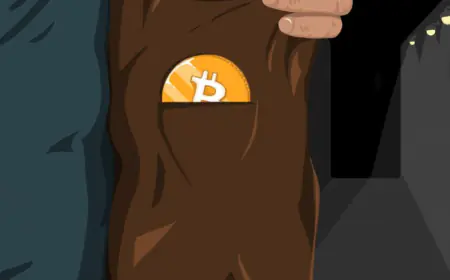Plastic Waste Recycling Enhanced with IOTA: EBSI and Digimarc Implement DLT and DPPs for Provenance
In partnership with Digimarc and Agro2Circular, the IOTA Foundation is developing a Digital Product Passport (DPP) system to address environmental challenges from plastic waste in agriculture, specifically targeting plastic mulch films. This system, funded by the European Commission’s European Blockchain PCP, will meticulously track the lifecycle of plastic waste from production to recycling and final [...]


- In partnership with Digimarc and Agro2Circular, the IOTA Foundation is developing a Digital Product Passport (DPP) system to address environmental challenges from plastic waste in agriculture, specifically targeting plastic mulch films.
- This system, funded by the European Commission’s European Blockchain PCP, will meticulously track the lifecycle of plastic waste from production to recycling and final product manufacturing.
In its recent collaboration with Digimarc and Agro2Circular, the IOTA Foundation seeks to tackle environmental challenges arising from plastic waste, especially from using plastic mulch films in agriculture.
Funded by the European Commission’s European Blockchain PCP, this collaboration seeks to boost recycling efforts by developing a Digital Product Passport (DPP) for plastics, per the CNF report. According to the OECD report from 2022, only 9% of plastic waste was recycled, while 22% was mismanaged. Thus, to address this issue, IOTA’s proposed ‘DPP for plastics’ prototype will minutely track the lifecycle of plastic mulch films from weight production to recycling and final product manufacturing.
Key Stages of the IOTA Digital Passport System
The IOTA Foundation has divided the entire waste management process of its Digital Passport System for agriculture into seven different steps.
- Waste Production: Farms using plastic mulch fils will be able to document waste collection details on the IOTA ledger using decentralized identifiers (DIDs). This data includes type and date of use and is signed and hashed to create a digital fingerprint that is stored on the IOTA Tangle for verifiable tracking.
- Waste Management: Authorized waste managers will record the collection and transport of plastic waste to recycling facilities.
- Recycling: The recycling facilities will process the plastic waste into new raw materials, with all recycling details logged and made verifiable for transparency.
- Manufacturing: Recycled products would be useful in the production of new products, such as eco-friendly packaging. These products will receive their own DPPs, which will link back to all the supply chain events while ensuring detailed tracking and sustainability verification.
- Quality Assurance: Third-party quality assurance organizations will certify the processes and product specifications by linking their credentials to the products’ DPPs.
- Consumer Interaction: Businesses purchasing bioplastics can scan QR codes on packaging to access the DPP, verifying product provenance and sustainability, thereby building trust with end customers.
- Auditing: Auditors verify records’ accuracy and compliance with environmental regulations, helping to prevent fraud and identify areas for operational improvement.
Ensuring Trust and Transparency
The European Blockchain Services Infrastructure (EBSI) Trust Framework will play a crucial role in ensuring traceability and transparency in the recycling of agricultural practices, reported CNF. This framework will model and verify the identities as well as relationships of all actors in this supply chain, right from the waste producers to auditors.
The framework uses GS1 EPCIS 2.0 standards to capture and record supply chain events such as shipping, receiving, packing, transforming, and classifying. Each product gets a GS1 Digital Link through the Illuminate platform, which connects all traceability events to form a comprehensive Digital Product Passport (DPP) view.
The physical products identified by a GS1 Digital Link are typically accessed via a QR code linked to their digital passports. This system allows easy access and verification through a DPP web interface and provides real-time status updates.
This innovative system will ensure that every participant maintains transparency, traceability, and sustainability of agricultural plastics.
What's Your Reaction?









































































































